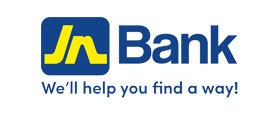As several tertiary students complete their degrees in May and trade in their books for a professional job, acting manager of the Youth Banking Unit at JN Bank, Alecia Clarke, is imploring the soon-to-be professionals to carefully manage that first pay cheque.
“I know that getting your first real pay cheque can be quite exciting and it should be- you earned it! But I also want to encourage young professionals to, from the very start, cultivate a habit of good financial management by budgeting their expenses,” she pointed out.
“Make a budget from now and stick to it.”
She added that a good way to budget is by using the 80/10/10 rule, which outlines that an individual should use only 80 per cent of their salary for their wants and needs, 10 per cent for tithes/charity and the remaining 10 per cent for savings and or investment.
Miss Clarke continued that one can start by setting aside savings and funds for charity or goodwill, then deal with the expenses.
“As a young professional, at the very basic level, some of your expenses may be food, shelter, utilities, and transportation. Assign a budget to each of these expenses, and add or subtract as needed. For example, if you budget a certain amount for food and the bill is repeatedly more than the budgeted amount, based on your cash flow, you can either decrease the shopping list or purchase more generic brands or increase the amount of money allotted for supermarket and less for other expenses. Another example is if housing or utilities is not one of your expenses, you can channel that extra money into savings or investment,” she advised.
While the budget for the first paycheck may not comprise every possible recurring expense, Miss Clarke said that it is important that the core expenses and savings are included, and changes can be made as persons adjust to their new lifestyle.
Additionally, she pointed out that it is important for those persons who have student loan obligations to include that as a part of their budget.
“It is important that you start to repay your student loan as soon as possible, not only so that others can benefit from the facility again, but so that you create a good track record as it relates to borrowing money. Not repaying loans, or even your utilities, can reflect badly on your credit report and make it difficult for you to get other loans,” she said.
Noting that savings is a crucial part of the budget, Miss Clarke says that there are several benefits to having savings and it is important that at least 10 per cent is saved each month.
“Having savings is important for several reasons such as making big purchases, investment, and emergencies. Speaking of emergencies, a portion of your savings should also be strictly for emergency purposes,” she informed.
She noted that JN Bank has several long and short-term savings options for persons who would like to cultivate the habit.
“Developing the habit of thrift can help persons to achieve independence,” she said. “Budgeting is the key to good money management and how you manage your first pay cheque lays the foundation for the pay cheques to follow.”






